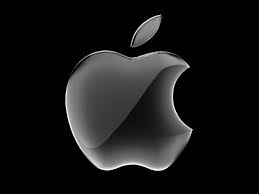
Apple's newest generation of the iPod shuffle certainly has the stunning aesthetic that has become synonymous with every Apple product. However, the design poses some basic functionality problems for users. The shuffle is so diminutive, that it, in fact, has no control buttons on the unit. In order to skip, replay, fast-forward or rewind through songs, the user must utilize the control set built directly into the headphones.
Apple has decided to technologically implement DRM (Digital Rights Management) into the headphones/controls on the new shuffle, borrowing a page from Lexmark's DRM'ed printer cartridges (or think of this move as a high-tech version of the razorblades sales model; only the appropriate (and expensive) razorblades will attach to a particular razor).
Through the use of DRM, Apple has programmed the newest shuffle to only recognize, and operate properly, with Apple "approved" headphones. This drastically hampers free competition, making it impossible for opposing companies to reverse engineer the headphones/controls unit, and market their own (a cheaper or a higher quality) version. Instead, these companies are forced to license with Apple ($$) in order to produce a compatible product. Sure, any headphones will plug into the device and play music, but there is no way to control playback. A music player without user controls is not only impotent but plain nonsensical (in my opinion the latest generation shuffle is ridiculous in its entirety, but that is an additional point) .
Coming from Apple, the blatant use of DRM to stymie competition and create a hardware monopoly is seriously troubling.
First, you would assume that Apple would learn from its past mistakes, most notably the backlash surrounding the heavily DRM'ed Apple store. Since the removal of controlling DRM from content sold at the Apple store, it is arguably more popular than ever. Why revert to controlling technology that is a proven failure?
Second, while the iPod shuffle may not be a "flagship" Apple product, the issue looms as to how far Apple's future use of DRM could reach. Say that Apple discovers they can make an extra $5 per hardware unit through the licensing of specially approved headphones on the shuffle. What is to stop them from incorporating controlling DRM technologies into future releases of their more popular products?
1 comment:
It is always better when someone else says it for you: http://www.macrumors.com/
Post a Comment